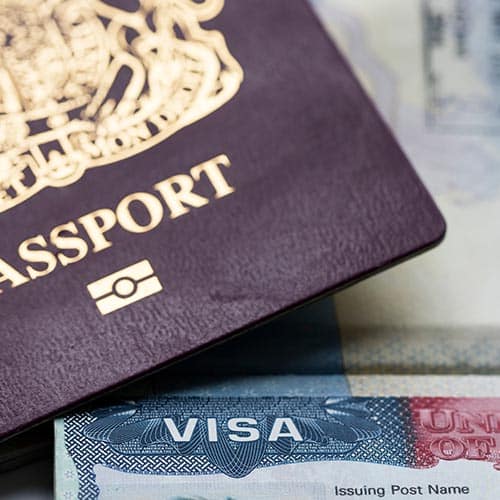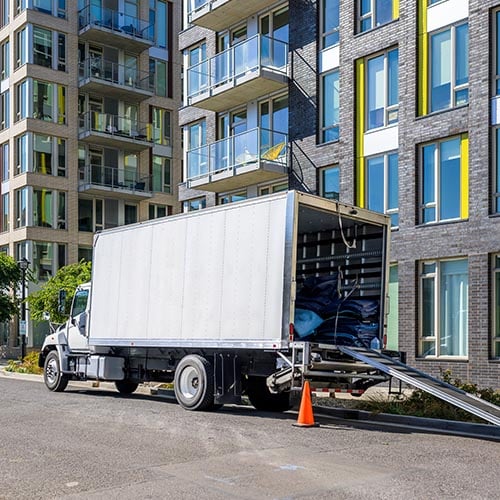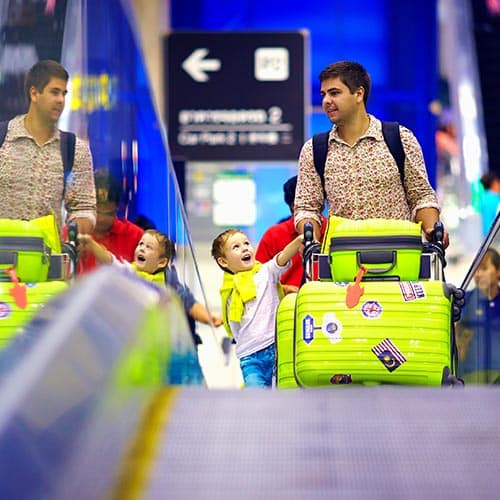FAQs
Home > FAQs
Do you have any questions about your expatriation?
It’s quite normal. Enyter will give you all the answers!
What subject do you want to know about?

Relocation
The word relocation means the action of moving to a new place and establishing one’s home or business there. It has come to designate the whole service provided to support employees being transferred. When you’re transferred, within France, overseas, from one country to another, you could do with some help with all the procedures: moving in, immigration, schooling, accommodation, setting up house, languages, employment for a spouse, taxation; in a nutshell, everything relating to your mobility. Whether you’re taking on a national or international assignment. Whether you’re taking on a national or international assignment.
They’re experts who know the immigration rules of the country where you’re going to work and live. They’re professionals who know the country or the region and know how to advise you on choosing schools, accommodation, setting up house, etc. They specialise in national or international moves, are proficient in the way things work and will provide you with the best advice. Most of all, they’re experts in mobility, since they’ve been through it themselves. They’re in the ideal position to understand your needs and expectations.
Anyone taking on a national or international assignment. In most cases, it’s the company that offers these services to their employees being transferred: couples, families with children, new hires, new graduates, international interns or apprentices.
Immigration
If you arrive in France with a long-stay visa, you have to get a residence permit within two months of entering France. You’ll need to apply to your local prefecture for a residence permit.
The procedure to authenticate a French document for a foreign authority varies depending on the international agreements concluded between France and the country of destination of the document: it may require legalisation, an apostille or an exemption.
If a translation is required for immigration formalities, it must be certified before being legalised or apostilled.
If notarisation is requested, the document must be notarised by a notary.
As soon as your international internship application has been selected by a company, you have to have a medical examination with an approved doctor and take the compulsory vaccinations required by your country of assignment.
An international internship lasts between 6 and 24 months and can be renewed once for a maximum of two years. You’ll need to ask the management agency for a renewal 1 to 3 months before the end of your assignment.
If you come to France with a “Talent Passport” or ICT residence permit, your husband/wife will be eligible for an Accompanying Family residence permit for the duration of your stay. Your husband/wife will then have the right to work.
If you’re going abroad, it all depends on your host country.
Applying for a travel document for foreign minors (DCEM) from the prefecture will make moving outside France easier. The DCEM is not compulsory for enrolment at any kind of school.
Many foreign countries don’t require a residence permit for enrolment. Some countries may ask you to prove that your child is a resident to validate their enrolment.
There are many driving licence exchange agreements between countries. We recommend you inquire about the agreement between your country of departure and your country of destination. Regardless of the country you’re travelling to, you’ll normally be asked to provide supporting documents, to prove in particular that you’re still allowed to drive in your country of origin.
Depending on your situation (level of education, salary, type of employment contract, etc.), you may be exempt from a work permit, especially if you’re eligible for a visa/Talent Passport residence permit.
If you’re a student, you have the right to work part-time. You must apply for a temporary work permit if you exceed the authorised working time.


Moving in
We recommend some backward scheduling to make sure you plan each step properly and think of everything. You can do it yourself or leave it all to us. If you’re moving to France or overseas, you can ask your company what cubic volume is authorised under the mobility policy.
Find out beforehand about the average surface area you’ll have and compare it with what you currently have. Consider asking us how to safely transport any fragile items you may have. If you have to leave objects and furniture here, ask to have them stored in a furniture depot and take only the minimum with you.
Border rules vary from country to country. Don’t hesitate to ask us to help you with all the required procedures and formalities: what items you can/can’t take with you to your country of destination, what documents you need to clear customs and to have your belongings delivered when you arrive.
You can start preparing for your move as soon as you know your mobility assignment date. The time needed for your move will vary depending on the destination, the country or the time of year. Stack the odds in your favour for a trouble-free move by being well prepared.
Employee
In France, the law allows you to have a pet so you can bring it with you. You’ll have to inquire for other countries because pets are not always accepted everywhere – it may depend on the country or the city. You’ll have to sort out your pet’s chip, vaccination record and transport.
Mobility policies generally provide help with the search for rentals, while relocation companies often offer services to help you buy a property. Find out beforehand.
Schooling is often one of the first subjects, if not the first, to be managed during a mobility assignment. It’s a good idea to work out what sort of course you want for your children; public, private, international, schools in your home country; specific options, specific courses. It’s important to know when enrolments start and are closed, how the waiting lists work and about any exemptions.
You could have some intercultural training to learn about the customs and practices of your new country of residence. This will help you to adapt more easily when you arrive, both professionally and personally. Then you could get in touch with associations representing your country in your new city. Feel free to contact them.
Around 50 countries (UK, India, Australia and South Africa in particular) drive on the left-hand side of the road. We recommend driving around for some time to get used to it. In addition, whether driving on the left or the right, we recommend you find out about the traffic rules in your future country. Note also that some countries don’t allow driving licences to be exchanged. In this case, you’ll need to retake your driving test.


You’re a human resources manager
Take advantage of Enyter’s experience to boost and optimise your employees’ mobility and make their transfer go smoothly. Together, we’ll define your needs and identify the appropriate services that comply with your Human Resources policy.
Make sure that your candidate’s residence permit allows him to work in your company. Also remember to check when his residence permit must be renewed or amended to remain in order throughout the entire employment contract.
Offer to help him with the move, find him new accommodation, choose a school for his children. It’s a win-win relationship. Once he’s settled in and well integrated into his new life as an expat, your employee will be able to devote himself fully to his new job. And you’ll be giving an excellent image of your company’s mobility policy. This will be a significant asset in your employees’ eyes and in the context of recruiting candidates for expatriation.
You’re a global mobility manager
You need to plan the project according to the expected date of arrival in the country. This will enable you to tell everyone involved the deadline for the move. You can prepare in advance for any issues regarding schooling or accommodation.
The process will vary depending on your employee’s profile. You should first examine his profile and the position to be filled to decide on the best strategy to adopt.
Coordination between several countries means working in accordance with a number of different sets of laws. It’s important to choose a relocation agent who works in different countries and so has the expertise and the answers to all your questions. This will give you the best and the fastest solution.


Mobility policy
Your company is expanding rapidly and you want to transfer some employees, within France or overseas. We suggest you organise your mobility assignments in accordance with your HR policy. The various services offered to employees must reflect your business objectives.
Global mobility is constantly evolving. Expatriation times are getting shorter. Employees are changing country or continent more often, without feeling the need to return to their home country. It’s essential to adapt to this new order of things. Apart from the legal aspects that you’re responsible for as an employer, you need to implement changes to help your employees settle quickly and comfortably in the host country.



